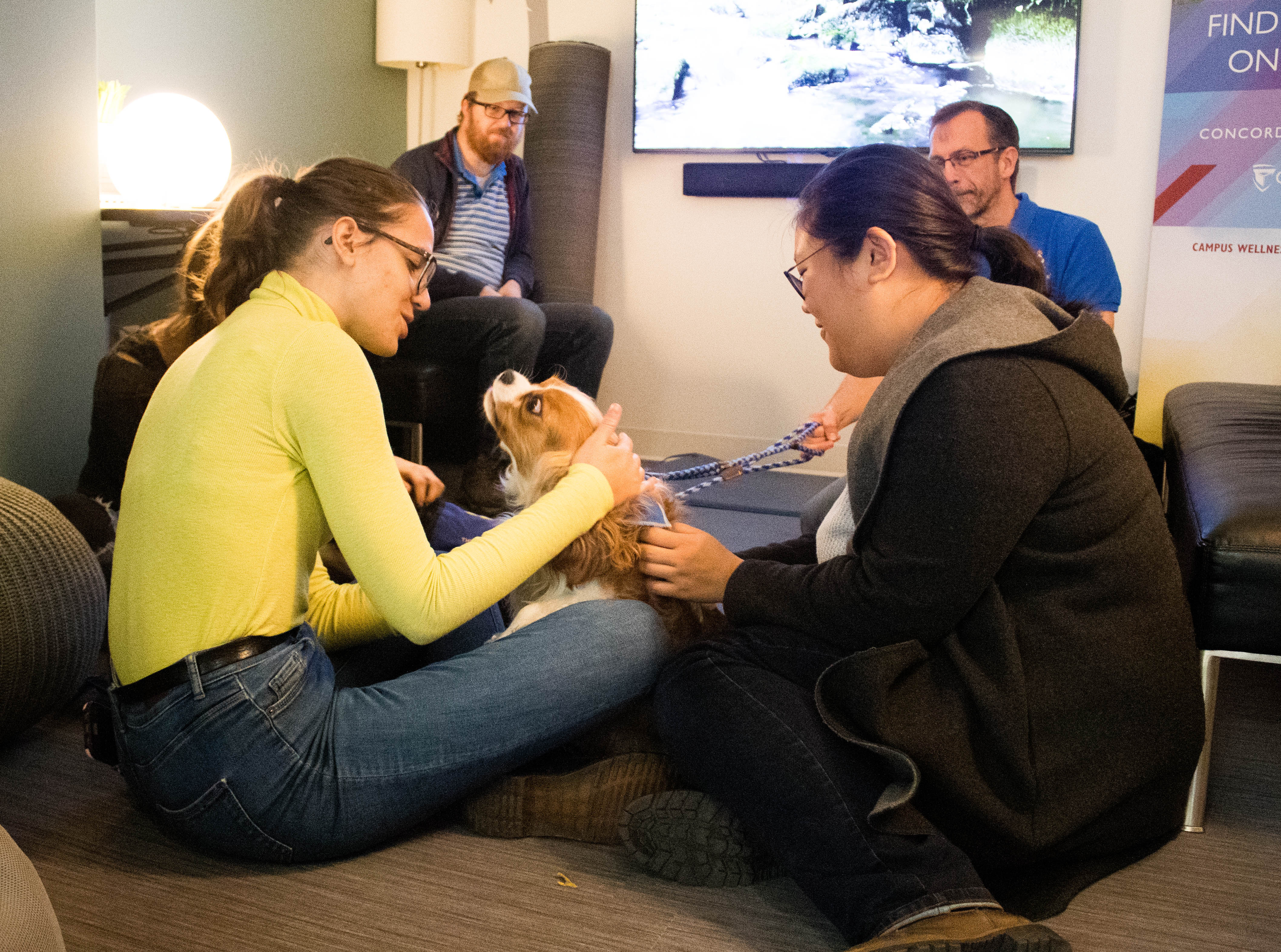Several times a month, Concordia University hosts dog therapy sessions open to all students in different locations across the downtown and Loyola campus.
“I think everybody right now is stressed all the time,” said Synneva Furuli, a computer engineering student at Concordia. “I think basically that’s kind of life right now, and dogs are so good, you just look at them and they’re so happy. Just be near them and they make you happy.”
Indeed, they’re cuddly, soft, friendly, and sweet.
Many of these dogs come from the Blue Ribbon Therapy Dogs, a nonprofit and volunteer organization in Montreal that provides dog and handler (therapy dog owner) evaluations and training.
“Therapy dogs work with their owners to provide services that improve people’s physical, emotional and communication abilities,” reads their website, followed by pictures of some of the organization’s available therapy dogs.
Harriet Schleifer, the founder and owner of Blue Ribbon Therapy Dogs, said she started the foundation because of the experience she had with her mother, who in her last years suffered from dementia and benefited greatly from having Schleifer arrive with her Shetland Sheepdogs.
“The only thing that helped her was my dogs,” said Schleifer. “And [it was] to the point where the people taking care of her would call and say we can’t get your mother to fill in the blank, take her bath, take her pills, eat her lunch, whatever; we need a dog. I’d go over there with the dog and whatever it was that we needed her to do and there was suddenly no problem.”
“We [humankind] kind of selected them for the dogs that relate best to people…now it feels that they can read our minds, because in a sense they can,” said Schleifer. “When I took Brandy there [a hospice], there was a gentleman that hadn’t spoken at a nursing home for eight years and he started to talk to her, like what did she do? Nothing you could see, she just sat down beside him and he petted her and he started talking to her. And after that he kept talking and started talking to the other people at the residence.”
Charles Altman, an advisor at the Access Centre for Students with Disabilities, also believes that there’s no doubt regarding the benefits of animal-assisted therapy in calming people down and centering them.
Altman described how at his previous work in HIV/AIDS services, he began a service called “Therapets,” a program that provided help and training so patients could keep their pets, even when they had to stay at the hospital. “We saw the real benefits, especially with people with immune system problems, it makes a huge difference in people’s morale and sense of wellbeing.”
In the middle of the session, a student stared blankly at her hands and rubbed them together. Lee Ehler, the therapy dog handler, noticing the change in her posture, asked if she needed a wipe for her to clean off any residue from dog kisses.
“No,” she replied, “I just have to go back to real life now.”
Feature photo by Cecilia Piga
